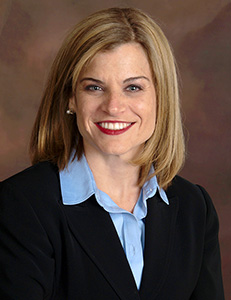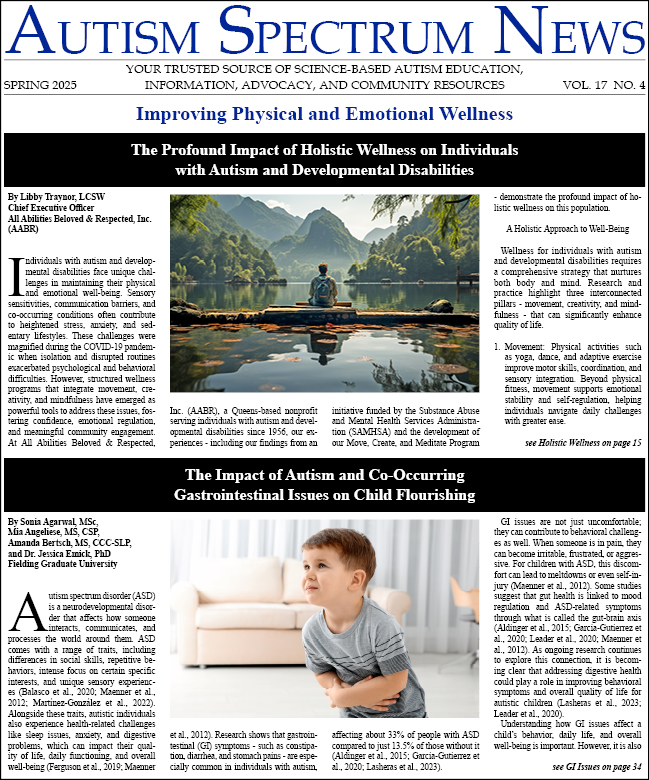Due to the COVID-19 outbreak, school districts across the country have struggled to meet their legal obligations as set forth in the Individuals with Disabilities Education Act (IDEA), Section 504 of the Rehabilitation Act (Section 504) and the Americans with Disabilities Act (ADA) for students with Autism. Consequently, many of those students have not been able to access and/or benefit from their educational program for extended periods of time. To address the gap in services, the personnel responsible for developing and/or implementing those plans are required to make an individualized determination as to whether compensatory services (e.g., services designed to remedy loss of skill or lack of progress) are needed.

Hillary D. Freeman, Esq.
By way of background, the IDEA and Section 504/ADA all require districts to provide a Free Appropriate Public Education (FAPE) to eligible students with disabilities. The primary difference is the type of educational benefit required. To address its FAPE obligation under the IDEA, a district must offer an Individualized Education Plan (IEP) that is “reasonably calculated to enable a child to make progress appropriate in light of the child’s circumstances.”1 The act requires an individualized approach to special education and direct instruction to be ‘specially designed’ to meet the student’s ‘unique’ needs. By comparison, a district can meet its FAPE obligation under Section 504/ADA through the provision of “general or special education and related aids and services that are designed to meet the individual needs of students with disabilities as adequately as the needs of nondisabled students are met.”2 (emphasis added). If a student with a disability qualifies for services under the IDEA, the district can satisfy Section 504’s standard of FAPE by developing and implementing an appropriate IEP.3
During the COVID-19 outbreak, these substantive requirements of the IDEA, Section 504/ADA were not waived. The US Department of Education issued guidance requiring states and school districts to ensure that, to the greatest extent possible, each student with a disability be provided the special education and related services identified in the student’s plan developed under the IDEA and/or Section 504 remotely and/or in person (provided the parties are safe).4 The members of the respective teams shall then make individualized determination at the appropriate time as to whether and to what extent compensatory services may be needed, consistent with the applicable requirements, to make up for any skills that may have been lost. Compensatory education merely remedies a loss of special education services for an extended period of time without regard to the cause of that loss.
How to Determine if a Student Needs Compensatory Education
In determining whether a student is in need of compensatory education, the parties can explore a number of factors that include but are not limited to the following:
- Has the student had internet connectivity to access the services afforded to other students online? If not, must be provided.
- How long was the student’s school closed?
- Was there a disproportionate impact on the student with disability as compared to other students during the same period?
- Was the student provided with the instruction via an alternative method during the closure? (e.g., virtual instruction)
- Were alternative methods as beneficial to the student as the methods normally used to serve the student?
- Was the student engaged and able to access the instruction and services?
- Was there clear documentation of how much instruction the student should have received? What percentage was actually provided?
- Are there indications that the student actually regressed during the period? Has the student actually lost any specific skills?
- Is there a possibility that the student will require ESY due to regression?
- Did the closure and/or virus cause any new special education needs (emotional, medical, academic) such that the student should be provided with any additional services or reevaluated?
In some states, such as New Jersey and Pennsylvania, the parties are not required to wait until schools completely reopen before determining whether compensatory education is warranted. Students may be eligible for compensatory education for missed 504 and/or IEP services either not provided at all or maybe offered remotely but weren’t effective.5 6
How Does a Team Determine How or What Form Compensatory Services Can Take?
Since the purpose of compensatory services is to put the student in the position he or she would have occupied if FAPE was provided, the personnel can be creative in determining how and when the services would be provided. Compensatory services can be in the form of independent evaluations (when evaluations are not conducted timely or appropriately), extra related services in school such as speech therapy, occupational therapy, social skills groups, summer programming, tutoring, and direct instruction. Supplemental ABA instruction can also be provided in school or even through a private agency (as described below) when the district is unable to provide the requisite services in a timely fashion. Again, this list is not exhaustive.
Lastly, in certain situations, districts may not be able to provide compensatory services (or any services) in a timely fashion due to restrictions in place surrounding COVID or the student’s unique needs (such as only being able to handle a limited amount of instruction during the day). In those situations, it is not uncommon for all parties to be creative and even entertain contracts with private providers to implement the services in the IEP or provide compensatory education as they often have more flexibility than the local educational agency as to when and how those services can be provided – in person or otherwise.
If the parties are unable to reach an agreement regarding the provision of compensatory education, the parents may want to consider unilaterally placing the student in a private program and seeking monetary reimbursement. There are often many requirements associated with receiving reimbursement, however, so it is recommended that parents who want to explore this option take the requisite steps to ensure compliance with their legal obligations.
Hillary D. Freeman, Esq., is deeply committed to her work representing people with special needs and their families. As the sister of a man with autism and a national speaker in special education matters, she is able to combine personal experience with her legal training to help families advocate for services and supports. She has experience representing clients in special education and Section 504 issues, higher education issues including accommodations on high stakes testing and graduate school admissions tests, guardianship matters, estate planning and adult services. She was named a Rising Star℠ by Super Lawyers & Magazine from 2013-2018. She has been honored with the Robin Sims Trailblazer Award in 2015 and has presented at the United Nations for World Autism Awareness Day. She holds a JD from Widener University School of Law and practices in both Pennsylvania and New Jersey. For more information, visit www.freemanlawoffices.com.
Footnotes
- Endrew F. v. Douglas County School District RE-1, 137 S. Ct. 988, 999 (2017) (quoting 20 U.S.C. §§1414(d)(1)(A)(i)(I)-(IV), (d)(3)(A)(i)- (iv))
- 29 U.S.C. 794; 34 CFR 104.33(b)(1)(i)
- 34 CFR 104.33(b)(2).
- Questions and Answers on Providing Services to Children with Disabilities during the Coronavirus Disease 2019 Outbreak, US Department of Education Guidance Memo dated March 2020; Fact Sheet: Addressing the Risk of COVID-19 in Schools While Protecting the Civil Rights of Students (OCR 2020).
- Such awards “should place children in the position they would have been in but for the violation of the Act.” Id. at 1289, citing Reid v. District of Columbia, 401 F.3d 516, 518 (D.C. Cir. 2005).
- It is an equitable remedy to remediate the loss of a FAPE for a period of time. It aims to provide “services prospectively to compensate for a past deficient program.” Draper v. Atlanta Indep. Sch. Sys., 518 F.3d 1275, 1280 (11th Cir. 2008).



